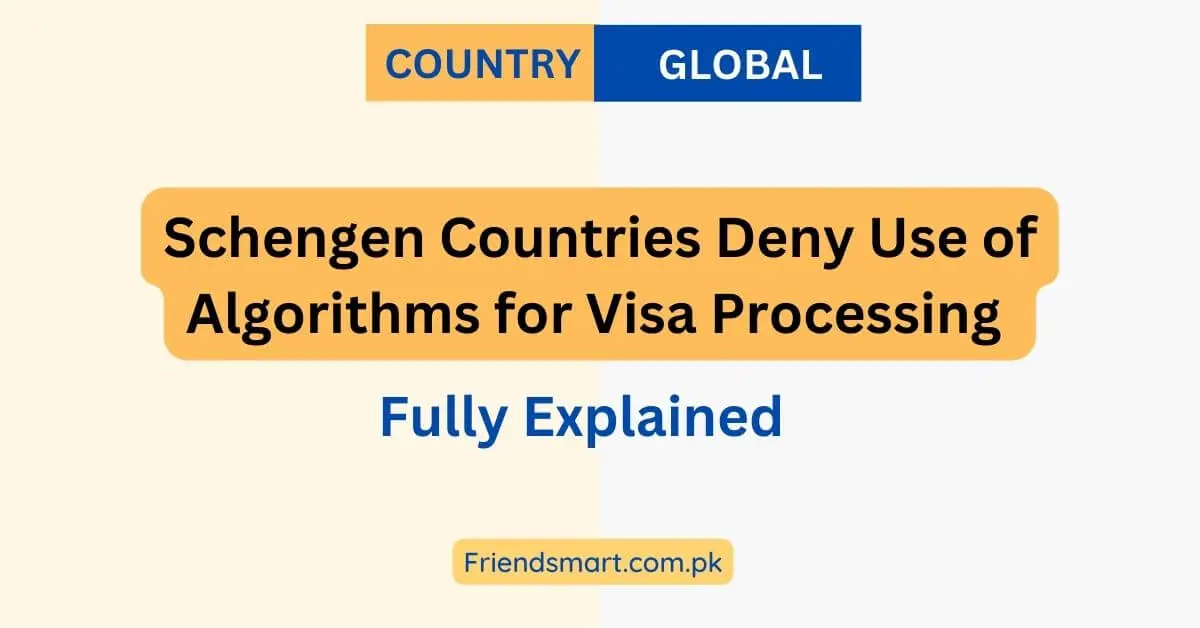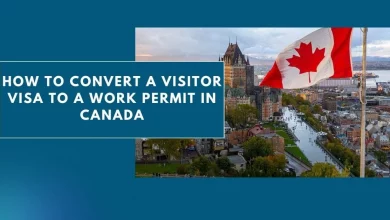Schengen Countries Deny Use of Algorithms for Visa Processing – Fully Explained

Schengen Countries Deny Use of Algorithms for Visa Processing: Recent investigations have revealed that the Netherlands allegedly used a secret algorithm to create racial profiles of Schengen visa applicants. Foreigners intending to visit the Schengen Area have expressed concern as a result.
As the summer season begins, foreigners who intend to travel to the Schengen Area are becoming increasingly hesitant due to reports of possible racial profiling in visa application procedures.
Recent investigations have revealed that the Netherlands has been accused of using a secret and possibly illegal algorithm to profile Schengen visa applicants on the basis of their ethnicity. These revelations have caused concern among nationals of non-Schengen countries, who fear that other Schengen nations may employ similar algorithms.
In an effort to shed light on the matter, SchengenVisaInfo.com contacted a number of Schengen visa-issuing countries; the responses received are provided below.
Schengen Countries Deny Use of Algorithms for Visa Processing
A joint investigation by Lighthouse Reports and the National Research Council has revealed that the Dutch Ministry of Foreign Affairs has been using a secret profiling system to evaluate the risk score of short-stay visa applicants since 2015.
Using variables such as nationality, age, and gender, the system profiles millions of applicants. Those deemed “high risk” are subject to delays and extensive investigations, which frequently result in visa denials.
The existence of such a system has raised concerns among prospective travelers and prompted inquiries regarding the use of algorithms by other Schengen nations.
Sweden and Spain Deny Algorithmic Profiling
The Swedish Migration Agency confirmed that no algorithms are used to profile Schengen visa applicants based on their race, age, gender, or socioeconomic status.
The agency emphasized that all applications are processed in accordance with the Schengen visa application code, with a decision expected within 15 calendar days, in some cases extending to 45 calendar days.
Similarly, the Diplomatic Information Office of Spain stated that Spain does not use a visa application algorithm or filter and treats all applicants equally.
Check Also: How to Use ChatGPT to Make Money
Silence from France and Switzerland Raises Concerns
Although France and Switzerland, two countries with a high number of Schengen visa applications, were contacted for official statements, they did not respond. Third-country nationals requiring a visa to enter the Schengen Area are more uneasy as a result of the lack of clarity from these nations.
VFS Global’s Assurance
VFS Global, a specialist in visa outsourcing and technology services, stated that they do not discriminate against Schengen visa applicants. Although they manage administrative tasks associated with visa applications for the Dutch government, they have never been responsible for applicant screening.
VFS Global clarified that visa appointment slots are not reserved for specific individuals based on their ethnicity and that the availability of visa appointment slots is contingent on the requirements established by client governments.
Applicants’ Experiences Highlight Concerns
Several applicants have come forward to share their experiences following the revelations about the Netherlands’ profiling algorithms, indicating potential discrimination.
It has been reported that Dutch authorities have issued different visa decisions to friends who submitted identical documents. Such occurrences have bolstered the notion that illegal and secret algorithms are used to filter Schengen visa applicants.
Visa Approval Rates and Rejections
To address concerns about visa denials, we have compiled a list of the countries where it is easiest to obtain a Schengen visa in 2022 based on the rejection rates.
The most accessible countries were ranked as Italy, Greece, Switzerland, Poland, Luxembourg, Finland, Slovakia, Latvia, and Lithuania. Malta, Sweden, Belgium, and France, on the other hand, had the highest rejection rates in 2022.
People Also Ask
-
What is the reason for a Schengen visa denial?
Visa rejection reasons for Schengen When your application for a Schengen visa is denied, it indicates that the embassy or consulate of the Schengen country to which you applied has reviewed your application and supporting documents and determined that you do not meet the requirements for obtaining a Schengen visa.
-
What are the leading causes of Schengen visa denial?
Among the most common causes of visa denials are:
Insufficient or improper application.
Inadequate travel medical insurance.
Insufficient evidence of financial means.
Invalid or insufficient travel purpose.
Uncertain lodging and travel itinerary.



